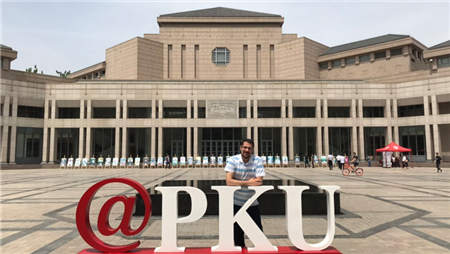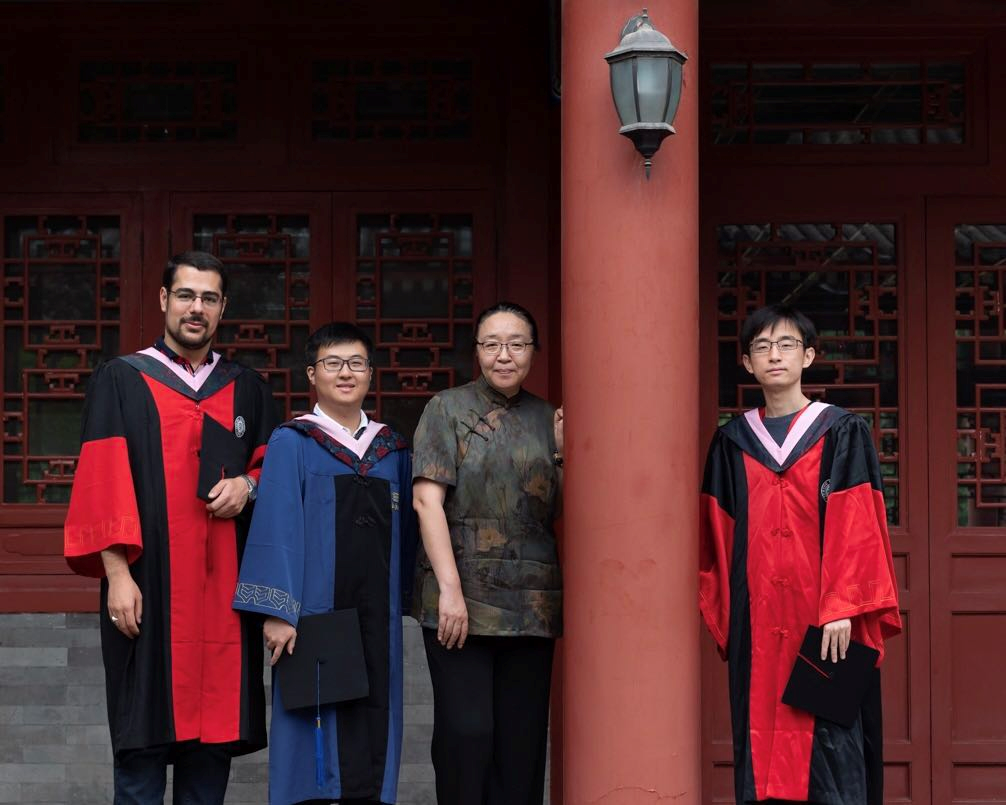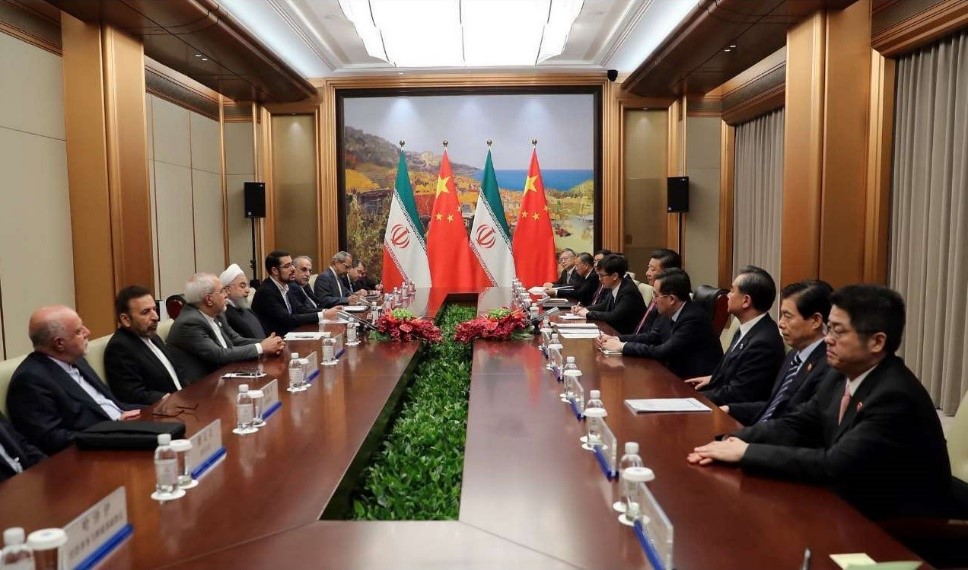[PKU excellent int'l alumni] Hamed Vafaei: The decade whets one sword
Jun 13, 2019
Peking University, June 13, 2019: As the graduation day for PKU students draws near, Beida News invited several international alumni to recall their life at Peking University and share their experiences outside the ivory tower.
Hamed Vafaei (好麦特), an international student from Iran, completed his Ph.D. study this year in the Department of Chinese Language and Literature at Peking University. Prior to his graduation, Vafaei has been learning Chinese for a decade. During his study at PKU, he received multiple awards and scholarships in recognition of his diligence and achievements. Currently, Vafaei has gone back to Iran and is working as dean of the Department of Chinese Language and Literature at the University of Tehran.
 Hamed Vafaei (好麦特)
Hamed Vafaei (好麦特)
Life at Peking University
Vafaei first visited China in 2009, after graduating from the University of Tehran, where he majored in Comparative Religions and Mysticism. During his undergraduate study in Iran, he developed a profound interest in Taoism, China’s traditional religion, and therefore was glad to come to China for further study in Chinese culture.
Vafaei started to learn Mandarin Chinese in northern China’s Jilin Province and then decided to pursue advanced studies in Chinese literature, believing that literature is the best way to understand the culture of a country. “I chose to study at Peking University because it is said to boast the best Department of Chinese Language and Literature in the world,” said Hamed, who considers it a great honor to finish his study here and return to Iran from the top-tier department of the renowned university.
Speaking of his life at Peking University, Vafaei has a lot of wonderful memories. “Peking University Library is like my second home in China,” said Vafaei, adding that he used to get up early to look for a seat in the library and spend most of the day there working on his thesis. When he got tired, he would saunter around the Weiming Lake and relax himself. Besides, he used to attend his Ph.D. supervisor, Professor Dai Jinhua’s workshop every week, where he made friends with many excellent researchers and scholars in the fields of comparative literature and Chinese culture. Vafaei is also very grateful to all the teachers who have taught and supported him, particularly the staff at the International Students Division, who were always warmhearted and helpful.

Vafaei, Professor Dai Jinhua and his schoolmates
Surprisingly, Vafaei didn’t suffer much from culture shock as an international student. Since China and Iran are both East Asian countries, the culture of the two nations is similar. However, he did come across some difficulties when he just started to learn Chinese, because Chinese is very different from Persian in many aspects. Besides, Chinese characters and idioms are hard to master. But Vafaei gradually became fascinated by the charm of this language through extensive reading and years of hard work. He has proved with his own experience that the best way to master a language is to immerse into the local culture.
While studying in Peking University, Vafaei experienced great pressure because his classmates were all excellent scholars in this field and he didn’t dare to slack in his own academic work for the sake of keeping abreast with his Chinese-speaking classmates. But Vafaei firmly believes that pressure can be transformed into driving forces. “Just as a Chinese poem goes, we will never smell the fragrance of plum blossom if it hadn’t withstood the bitter coldness,” said Vafaei.
To encourage other international students in Peking University, Vafaei quoted his favorite motto: self-improvement and great virtue. Self-improvement is obviously what every student should strive for while great virtue is what matters most to every scholar. He always believes that the significance of learning lies in enhancing human morality.
Bridging the gap between China and Iran
According to Vafaei, learning Chinese is gaining popularity in Iran today. More and more students are eager to learn this language and many universities are planning to set up the Department of Chinese Language and Literature, but the problem is that professionals in this field is very limited. “The gap has always existed in studies related to Chinese language, culture, and literature,” said Vafaei. For example, many existing Persian versions of Chinese classical literary works were translated from an intermediary language such as English or French. Vafaei believes that Iran and China, both as East Asian countries, can understand each other better than western countries do. Therefore, to bridge this gap, he dedicated himself to learning Chinese culture and started his career in Chinese teaching.
In addition to teaching language skills, Vafaei often encourages students to read Chinese newspapers, ancient Chinese literature, etc, and he believes it is necessary to read the works of Lu Xun and other modern writers to better understand Chinese society. "I have also taught Chinese students Persian and Iranian culture during my stay in China," Vafaei added, "Chinese students are very assiduous and persistent. Once they make a decision, they will definitely keep it up."
Moreover, as a literatus himself, Vafaei also writes articles and has translated the Chinese novel Decoded written by Mai Jia, through which he has realized again the importance of learning Chinese culture. He has also finished translating a book of Chinese Tang poetry recently and has received help from his teachers and schoolmates at Peking University. In the future, Vafaei will continue to popularize Chinese ancient and modern literature so that more Iranians can get to know about China.

Vafaei interpreting for Iranian president
Written by: Liu Chang
Edited by: Zhang Jiang, Huang Weijian
Photo credit to: Islamic Republic News Agency


